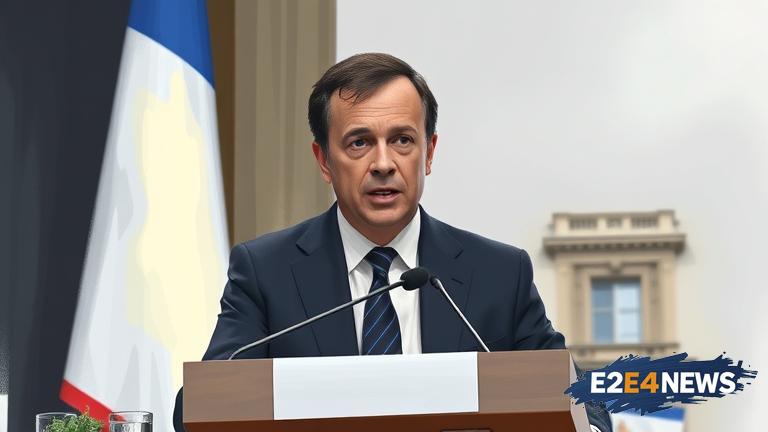The French government, led by Prime Minister François Bayrou, is set to face a confidence vote on September 8 regarding its budget plans. This move comes as the country navigates through a period of economic uncertainty, with concerns over public finances, debt levels, and the impact of global economic trends on the French economy. The confidence vote is a significant test for the Bayrou government, which has been working to implement fiscal reforms and stimulate economic growth. The budget plans in question aim to reduce the country’s deficit and promote economic competitiveness, but have been met with skepticism by opposition parties and some economic analysts. The vote will be closely watched by international observers, as it may have implications for the European Union’s economic policies and the stability of the eurozone. France, as one of the EU’s largest economies, plays a crucial role in shaping European economic policies. The Bayrou government has been under pressure to deliver on its economic promises, with the French public increasingly concerned about the cost of living, job security, and the overall direction of the economy. The opposition has criticized the government’s budget plans, arguing that they do not do enough to address the root causes of France’s economic challenges. Meanwhile, some economists have warned that the plans may not be sufficient to reduce the country’s debt levels and promote sustainable economic growth. The confidence vote is also seen as a test of the government’s ability to work with the opposition and build consensus on key economic issues. The French parliament will debate the budget plans in the coming days, with the vote scheduled to take place on September 8. The outcome of the vote is uncertain, with some predicting a narrow victory for the government and others forecasting a defeat. The implications of a defeat would be significant, potentially leading to a government reshuffle or even new elections. The French public is watching the developments closely, with many expressing frustration with the political establishment and the lack of progress on economic issues. The Bayrou government has promised to listen to the concerns of the French people and to work towards building a more prosperous and equitable economy. However, the road ahead will be challenging, with the government facing opposition not only from other political parties but also from trade unions and other interest groups. The budget plans are part of a broader effort to reform the French economy and make it more competitive on the global stage. This includes measures to reduce bureaucracy, promote innovation, and invest in key sectors such as renewable energy and digital technology. The government has also pledged to reduce taxes and simplify the tax code, in an effort to stimulate business investment and job creation. Despite these efforts, the French economy remains vulnerable to external shocks, including fluctuations in global trade and changes in the international economic environment. The confidence vote on September 8 will be a crucial moment in the ongoing debate over France’s economic future, with the outcome having significant implications for the country’s political and economic stability. The French government is under pressure to deliver a clear and convincing vision for the economy, one that addresses the concerns of the French people and sets the country on a path towards sustainable growth and prosperity. As the vote approaches, all eyes will be on the French parliament, with the international community watching closely to see how the situation unfolds. The next few days will be critical in determining the outcome of the confidence vote, with the government and opposition engaging in intense negotiations and lobbying efforts. The French people will be waiting anxiously for the result, hoping that their elected representatives can find a way to work together and build a better economic future for the country.
